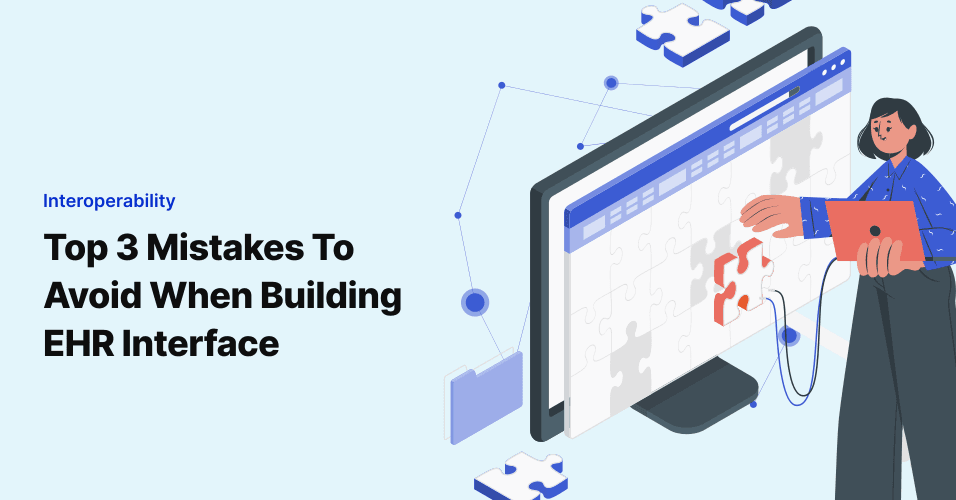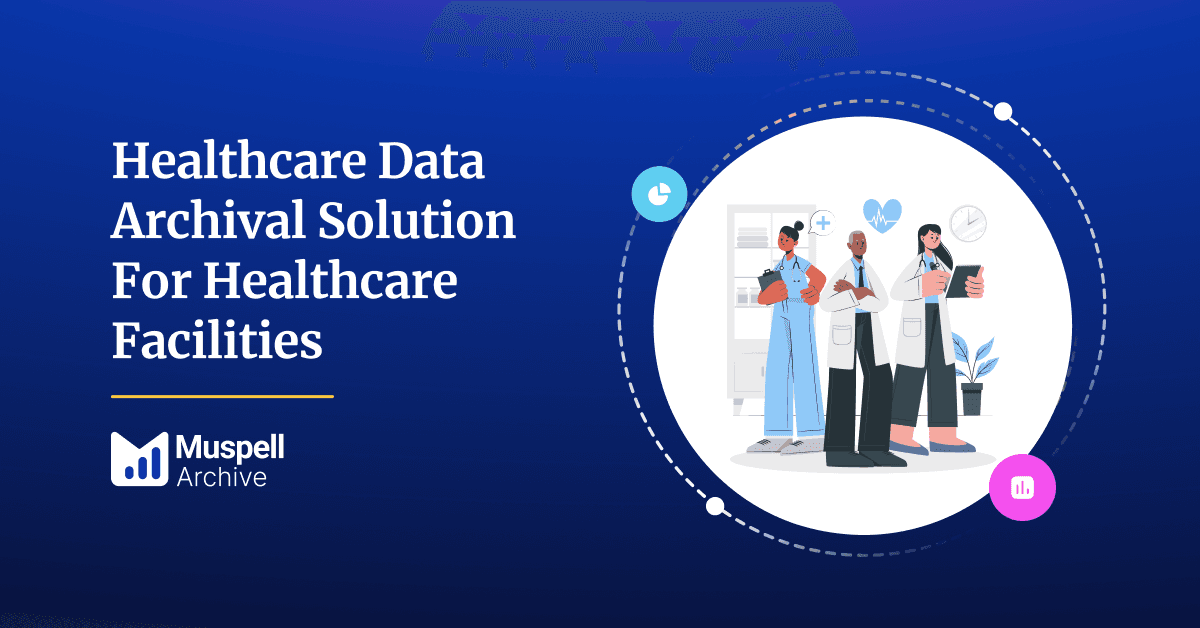
How to Create Healthy EHR Interfaces
One of the key benefits to hospitals for investing in a robust EHR like Epic is to not only cultivate their …

The importance of data collection and its analysis lies in the fact that the more accurate the collected information is, the sounder would be the decision-making process. The healthcare industry is one of those industries that have been greatly influenced and altered by data collection techniques. Now, with the digital revolution, the ability of collecting and processing data has exponentially increased, which is furthermore, leaving a positive impact on patient experiences.
In this article, you will be able to explore:
Data collection refers to the systematic process of analyzing, gathering, and interpreting various kinds of information from different sources. The basic purpose of collecting data is to develop the proper marketing strategies for the company’s products as well as to prepare the right organizational prevention strategies. Data collection should be a top priority of every Healthcare establishment.
Data can be mainly divided into two types:
As the process of data collection is becoming more and more digitized, its importance in the healthcare industry is also getting more prominence. The healthcare industry, in particular, is being benefitted through the development of data technology in a number of ways. In fact, there are a lot of reasons why big data can serve a useful purpose for healthcare businesses of all sizes.
Healthcare companies and hospitals are making use of big data for improving decision-making within organizations, increasing the efficiency of marketing strategies, and improving patient outcomes. However, big data would be completely useless if it is not collected properly. The practice of dynamic data collection can help the healthcare industry in the following ways:
The modern healthcare system comprises a vast interconnected network of entities, which involves insurance providers, hospitals, pharmaceutical companies as well as government entities. This makes the system incredibly complex. If the interconnected relationship between these entities is not managed adequately by the care provider, then maintaining the continuity of operations might turn difficult.
Data collection, along with analysis software, can help in enhancing the competitiveness of a healthcare organization. It can help in identifying their revenue cycle inefficiencies, streamline the communication with payers as well as help in improving profitability.
Data collection plays a prominent part in all decision-making processes. Various performance data could be analyzed by key stakeholders for making strategic, informed decisions regarding the healthcare organization and the direction where it is going.
All of these data would not just serve as useful for the C-suite executives but would also help in guiding decisions regarding patient care. Clinicians can efficiently and quickly access patient data while developing an ongoing plan of patient care. This would ultimately help in leading to higher patient care quality.
While data collection might not directly play a role in scaling down the high healthcare service costs, it can definitely create a significant impact. Advanced technologies of data collection can help in increasing the efficiency of data collection and entry practices. This will eventually lead to driving down the skyrocketing costs of patient care and result in savings for the healthcare organizations.
Perhaps the most significant role of data collection is that it can lead to better patient outcomes. When the clinicians, support staff, and insurers are able to efficiently and safely exchange information, they can work together towards the common goal of providing effective treatment to the patients.
Data collection methods and big data technologies have altered and influenced the healthcare industry in a number of ways. Data collection can directly help in combating existential diseases efficiently and forecasting pandemics. It can also solve local organizational issues such as reduction of workloads and healthcare agency profits. Hence, data collection indeed plays a very important role in terms of improving patient experience.
To put it concisely, some of the ways by which data collection can directly help in improving patient experience are as follows:
There is a huge amount of complex and large data that gets generated by the life science industry every minute. The collection of big data from this industry can help in risk assessment. Risk assessment helps in reducing the spread of epidemics, preventing fatalities, and increasing life expectancy, among others. Not just that, the process of big data advancements can also help in noticing early trends and help in creating solutions that would last before things could go out of control.
Life Science industry data can also help in assessing the effectiveness of clinical trial procedures. They help in determining whether a treatment method or device is safe for patients. It would also help in increasing the effectiveness of Electronic Medical Records (EMRs) and technologies in clinical trials.
Telemedicine is something that has been around for decades, but it is now that it is slowly reaching its full potential, thanks to the increasing use of smartphones, video conferencing, and wireless portable devices. The provision of remote clinical services or the growth of telemedicine is another example of why it is important to collect quality data in healthcare. Primary consultations and diagnostics, along with regular monitoring of the status of patient health - all of it come under telemedicine data.
Data collection from the Telemedicine sector would help in getting valuable information regarding the cost of medical services, how they are impacting the patient’s health, and strategies to prevent the deterioration of patient health.
Research papers would contain valuable information, experiments, and analysis on a target population which would provide valuable insight for making patient decisions. Collecting data from research papers written by industry leaders regarding various aspects such as the social determinants of health, the current healthcare trends, etc., could help in getting an expertized perspective on these issues.
Social Determinants of Health have a major role to play in terms of health outcomes, especially for vulnerable populations. Some of the factors that fall under SDOH or Social Determinants of Health include:
1. Education and literacy
2. Childhood experiences
3. Physical environments
4. Social supports
5. Coping skills
Research has proved that higher education influences better health. Access to safe neighborhoods and healthy foods get inhibited by poverty. Collecting data regarding these factors is important to provide better treatment facilities and come up with effective health solutions. When there are data resources available for addressing these economic and social conditions, they can help in creating a significant impact on the outcomes of the healthcare system.
The future of data collection stands safe in the hands of technology. For instance, mobile health technologies such as wearables and telehealth can help in providing customers with healthcare services, analytics, and information instantly. Information, such as population and individual health, can become readily available to the providers of healthcare for predicting outcomes and accordingly preparing preventive care through big data technologies.
Artificial intelligence or AI is also a field that is increasingly becoming popular across industries, including healthcare. Healthcare Data collection techniques also have the potential of benefiting greatly through AI. With the assistance of AI, clinicians would be able to sort out relevant information regarding disease management, which would influence them in making the correct decisions. As technology is evolving, more and more medical researchers are increasingly using AI technologies to set up appropriate algorithms and modalities for various treatment techniques. Data gathered from AI methods excel at providing information regarding complex images, early disease stages, and exact pathologies behind treatment methods.
The healthcare industry has the scope to gain tremendously through the process of effectively digitizing, combining, and applying big data. Healthcare organizations can create personalized, holistic, and comprehensive profiles of patients, as well as detect diseases through big data at relatively early stages, which would help in more efficient treatment.
Data collection techniques, especially big data, have great potential to improve medicine, finance, and technological aspects in the healthcare industry. Patients could expect better care quality in and out of healthcare facilities, and healthcare providers could compile comprehensive profiles of patients, which would help in increasing customer loyalty.
Join over 3,200 subscribers and keep up-to-date with the latest innovations & best practices in Healthcare IT.

One of the key benefits to hospitals for investing in a robust EHR like Epic is to not only cultivate their …

Since the release of the Cures Act Final Rule in May 2020, the US healthcare industry has been experiencing a …

The healthcare sector is evolving into a competitive arena where the accumulation of Protected Health …